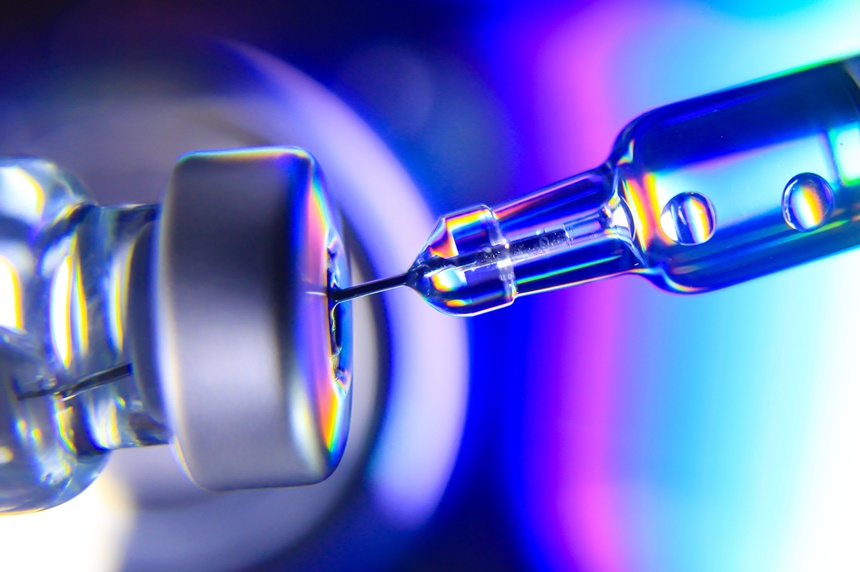What do cancer, sex, and vaccines have to do with one another? The answer may not be what you think.
Cancer is the second most common cause of death in the USA, after heart disease. Some cancers are caused by environmental exposures like smoking, alcohol, asbestos, or air pollution. Some are caused by inherited cancer genes. Others are “sporadic, meaning we don’t know what causes them. But some cancers are caused by viruses, and that’s the topic of today’s column.
Out of the cancer-causing viruses, human papillomavirus (HPV) is by far the most common. Papilloma is a fancy name for “wart.” So, as you might expect, most of the time this virus causes unpleasant but harmless warts. But HPV can also cause cancers in the throat, cervix, anus, or penis, with a total of 37,300 cancers per year in the USA and over 630,000 cancers worldwide. Actor Michael Douglas is one the most recognizable faces of HPV-related cancer, as he was successfully treated for a Stage IV throat cancer in 2010-11. Other virally-transmitted cancers include liver cancer (hepatitis B and C viruses) and nasopharynx cancer (Epstein-Barr virus).
So, what is HPV? HPV is one of the most common viruses in the world, and it is sexually transmitted. If you have ever had sex, you’ve probably been exposed to HPV. It is estimated that 80-90 percent of all humans will contract an HPV infection within their lifetime.
Most HPV infections don’t cause any illness and are cleared by your immune system, after which you are immune to that HPV subtype. Sometimes your immune system fails to clear an HPV infection. The virus may remain latent, meaning it does not cause any disease. Or it may cause HPV-related disease such as genital warts, cervical cancer, throat cancer, penile cancer, or anal cancer.
There are over a hundred subtypes of HPV, so just like flu or COVID, it is possible to have many HPV infections during your lifetime. Some of these subtypes carry a higher cancer risk than others and thus are called “high risk HPV.”
The HPV vaccine has existed since 2006, and the current U.S. vaccine covers nine high-risk HPV subtypes. It is more than 95 percent effective in preventing infections from those subtypes, but does not help you to clear an HPV infection that you already have. For this reason, the vaccine is much more effective if you complete the series before you ever have sex. The current U.S. vaccine schedule has three doses of HPV vaccine starting at age 9-12, but is FDA-approved for adults up to age 45.
As of 2022, 62.6 percent of U.S. adolescents were up to date on their HPV vaccination schedule. This is less than the 80 percent vaccination coverage of Norway, Australia, or Canada, but much better than the 30 percent in France or Japan. Countries with high vaccination coverage have seen a decrease in the number of HPV-positive cancers each year. This decrease is likely to continue for many decades, as HPV vaccination appears to provide lifelong immunity.
HPV vaccines can prevent devastating cancers, so why isn’t everyone vaccinating their kids? Many people are skeptical of vaccines in general, especially in the aftermath of the COVID pandemic. Some are concerned about the side effects of vaccination. Some believe that it is wrong to vaccinate children against a sexually transmitted infection, as some people will remain celibate for their lifetimes. Many HPV-skeptical parents are concerned that vaccinating against a STD could encourage adolescents to engage in risky sexual behavior.
Thanks in part to early concerns about the safety of HPV vaccination, long-term follow-up data has been collected on hundreds of thousands of adolescents who received HPV vaccines. There is no evidence that these vaccines increase the risk of blood clots, autoimmune disease, miscarriages, or any other major illness. There is also no evidence that vaccinated teens are any more sexually promiscuous or less likely to use protection when having sex.
So, I strongly recommend in favor of HPV vaccination. It is a widely available vaccine with an excellent safety record, and provides lifelong protection against nasty diseases.
Become a Saturday Evening Post member and enjoy unlimited access. Subscribe now




Comments
A new description needs to be made for ‘vaccines’. “Safe and effective” has been ruined.
Interesting. Wouldn’t it be great to go to the local health department for vaccinations to prevent this virus where in turn could keep you cancer free?! I’m all in!